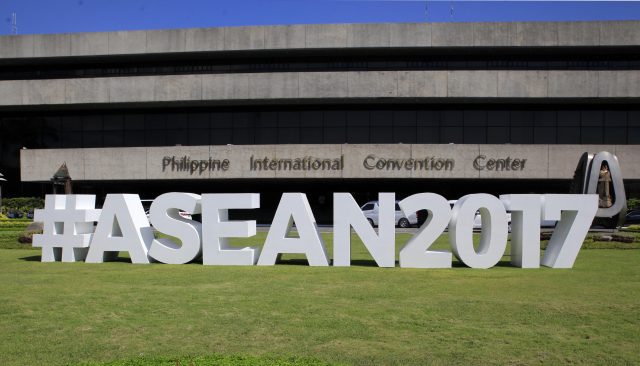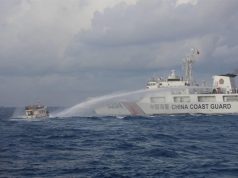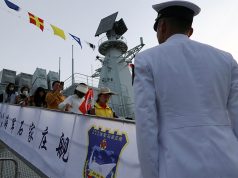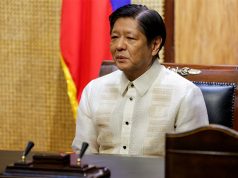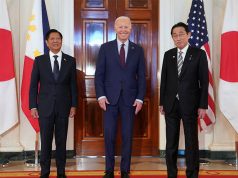MANILA – Philippine Foreign Affairs Secretary Alan Peter Cayetano admitted that he had sought to exclude from the joint ministerial statement of the Association of Southeast Asian Nations (ASEAN) wordings shunned by China, just to ensure the process of engagement does not stall.
In a press briefing after hosting the ASEAN Ministerial Meeting, Cayetano said he initially objected to including the phrases “non-militarization” and “land reclamation” from the meeting’s statement because it no longer reflected current developments in the dispute in the South China Sea.
The Philippines also avoided a pointed reference to the 2016 UN arbitral ruling that favored Manila over China. He recalled how China had once threatened to stop further dialogues if enforcement of the arbitral ruling in cited in the joint communique.
The DFA chief said the Philippines did not insist on its own position in order to fast-track attainment of a consensus, stressing the importance of producing a joint communique for the 10-nation regional bloc, which marked its 50th anniversary this week.
While the ministers did not share similar views on certain issues, their ability to forge a joint communique is testament to ASEAN centrality, Cayetano pointed out.
Trilateral dialogue
Cayetano, meanwhile, expressed hope that Australia, Japan and the United States, three key partners of ASEAN, would no longer meddle in the sea dispute and focus on their bilateral relations with ASEAN members.
He was referring to the Australia-Japan-United States Trilateral Strategic Dialogue Ministerial Joint Statement, which called on China and the Philippines “to abide by the Arbitral Tribunal’s 2016 Award in the Philippines-China arbitration, as it is final and legally binding on both parties. The ministers noted the significance of the UNCLOS dispute settlement regime and the Tribunal’s decision in discussions among parties in their efforts to peacefully resolve their maritime disputes in the SCS.”
China resented the trilateral statement, with Chinese Foreign Minister Wang Yi saying countries that are not involved in the dispute and have a shallow appreciation of the issues should not wade into the discourse. He rued their lack of appreciation of how far ASEAN and China have moved forward.
“[Why] is it that some countries do not want to see greater stability in the South China Sea? Is it that greater stability in the South China Sea does not serve their own interests? I think everyone can think about this issue,” said Minister Wang.
e explained, meanwhile, the inclusion again of the terms “non-militarization” and “land dispute” in the final joint communique, saying these referred not to China but to another country.
He said China had long finished its land reclamation project.
“Only a few foreign ministers expressed their concern on land reclamation, so this is not a consensus between the 10 ASEAN countries, because only one or two foreign ministers raised their concern [regarding this issue.] I want to tell everyone here that China stopped its land reclamation two years ago, or in other words, we have already concluded our land reclamation projects. If anyone wonders who is carrying out these kind of activities, it is definitely not China.”

